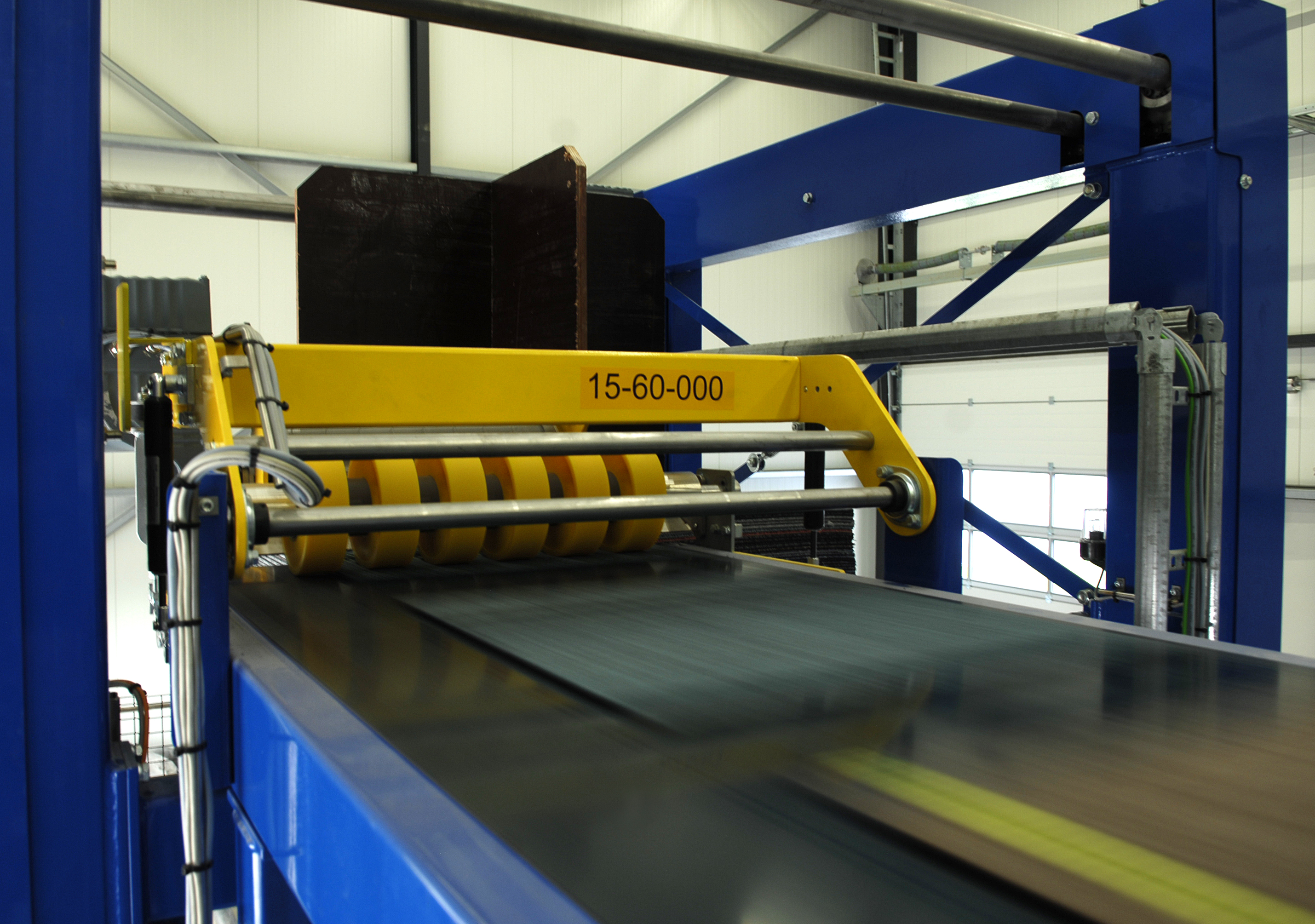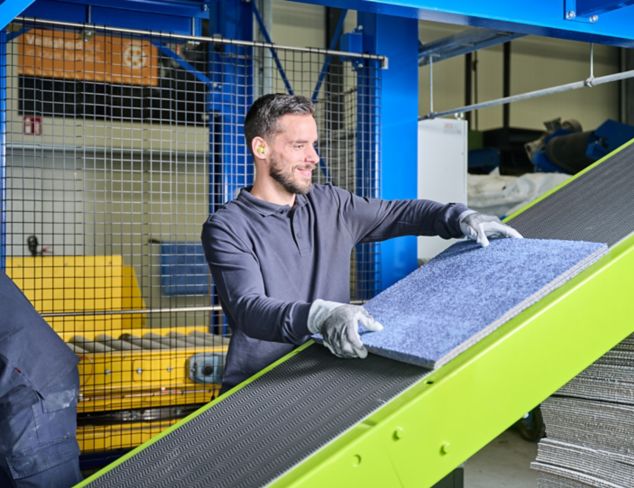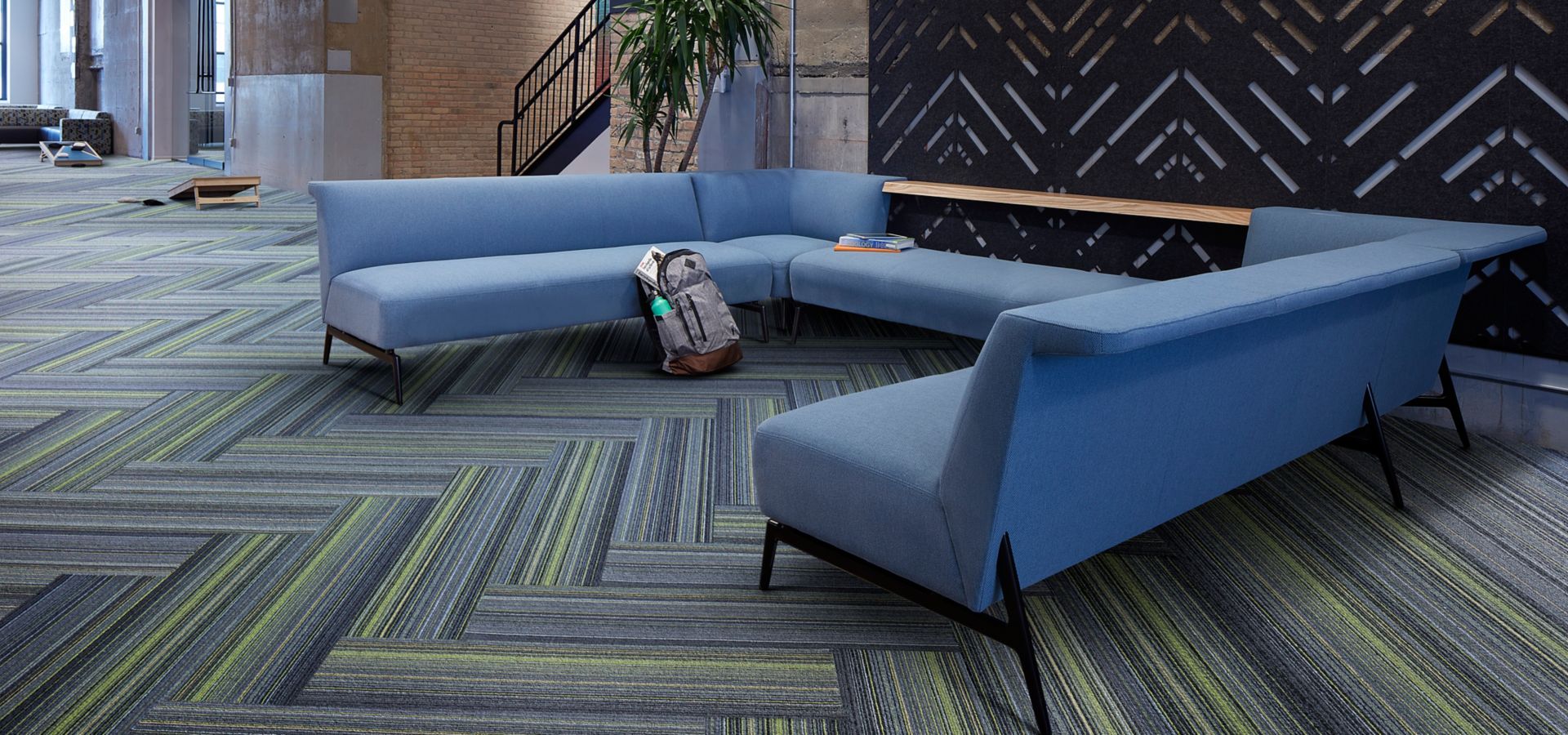Select a Location
It’s flooring—and then some. Made for More.
INTERFACE SETS THE
STANDARD FOR SUSTAINABILITY


And we continue to raise the bar - not just for us, but the entire flooring industry. That’s why we’ll be carbon negative by 2040. And why we are expanding our efforts to reduce the carbon footprint of our products AND provide a greater level of carbon transparency.
CALCULATING CARBON WITH EC3
To inform your selection of low carbon materials for your project, we’ve compared the Interface carbon footprint to the “Conservative” value pulled from the Embodied Carbon in Construction Calculator (EC3) tool. The “Conservative” value is the 80th percentile of all cradle-to-gate (A1-A3) GWP values from EPDs that meet the search criteria. The comparison is made against the Conservative benchmark in the EC3 tool, commonly used to represent a competitive benchmark for carbon footprint that most global carpet mills can meet (80% of published carpet tile EPDs in the EC3 database have a carbon footprint less than or equal to the Conservative number).
The search criteria is noted below and changes in the EC3 tool as new EPDs are entered which is why there is a date referenced. Carpet tile is always compared to carpet tile, and LVT and nora rubber are compared to an overall Resilient Flooring Conservative value since different types of resilient flooring are often considered based on different project and installation requirements.
- EUROPE, MIDDLE EAST & AFRICA
- NORTH & SOUTH AMERICA
- ASIA - PACIFIC
- Resilient flooring (15.7 kg CO2e/sm) based on Conservative Value pulled from EC3 tool on February 22, 2024 with search criteria: Resilient Flooring and Global geography.
- Carpet tile (6.95 kg CO2e/sm) based on the Conservative Value pulled from the EC3 tool on February 22, 2024 with search criteria: Carpet Tile and Europe geography.
- Resilient flooring (15.7 kg CO2e/sm) based on Conservative Value pulled from EC3 tool on February 22, 2024 with search criteria: Resilient Flooring and Global geography.
- Carpet tile (7.67 kg CO2e/sm) based on the Conservative Value pulled from the EC3 tool on February 22, 2024 with search criteria: Carpet Tile and North American geography.
- Resilient flooring (15.7 kg CO2e/sm) based on Conservative Value pulled from EC3 tool on February 22, 2024 with search criteria: Resilient Flooring and Global geography.
- Carpet tile (8.69 kg CO2e/sm) based on the Conservative Value pulled from the EC3 tool on February 22, 2024 with search criteria: Carpet Tile and Global geography.

PUBLICLY AVAILABLE DATA
EC3 is a free, open access database that includes product-specific Environmental Product Declarations (EPDs). For questions or a demo, contact sustainability@interface.com.
The “Interface” carbon footprint includes the total emissions associated with the cradle-to-gate or “upfront carbon” life cycle stages of the floorplans we provide. For carpet tile, the footprint is based on the standard backing unless otherwise requested. For all products (carpet tile, LVT and nora rubber), values are pulled from each product’s relevant EPD.
